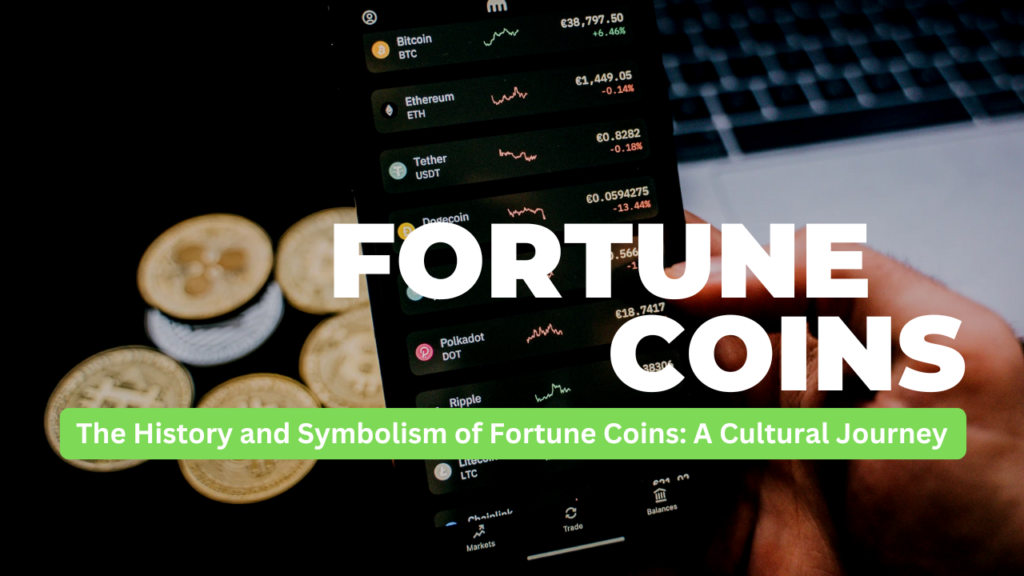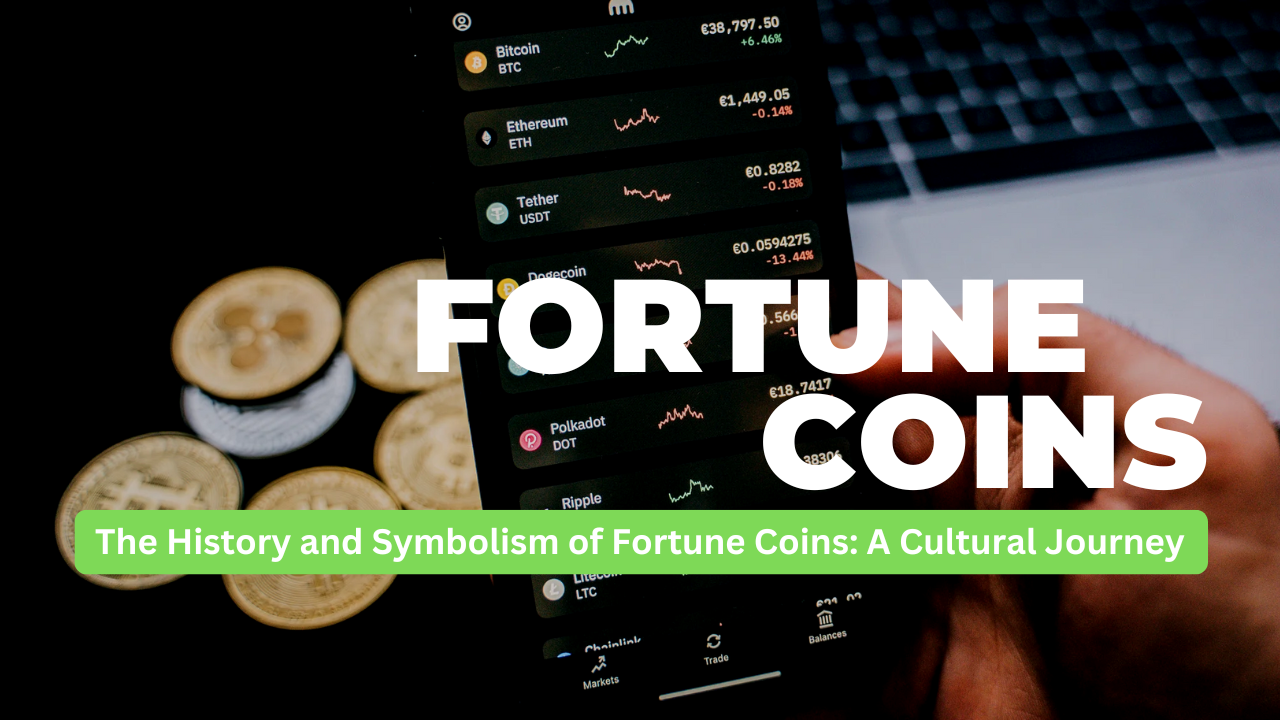
Introduction
Have you ever wondered why some cultures treasure little coins with unique designs and historical significance? Fortune coins, often seen as tokens of luck and prosperity, have a rich history that weaves through various cultures, belief systems, and even superstitions. In this article, we’ll embark on a cultural journey to uncover The History and Symbolism of Fortune Coins. From ancient civilizations to modern-day practices, these coins have served as more than just currency; they’ve become symbols of hope, good fortune, and even spiritual protection. So, grab your lucky charm and let’s dive in!
The Origins of Fortune Coins
Ancient Beginnings
Fortune coins date back thousands of years, with origins tracing to several ancient civilizations. The first known coins emerged in Lydia (modern-day Turkey) around 600 BCE. While these coins primarily served as currency, their evolution led to the creation of coins imbued with symbolic meaning.
- Lydia: Considered the birthplace of coinage, these coins were made of electrum, a natural alloy of gold and silver.
- China: Around the same time, the Chinese began crafting coins, often shaped like circles with a square hole in the center, symbolizing heaven and earth.
Symbolic Significance
The symbolism attached to these coins varies greatly depending on the culture. For instance:
- Chinese Coins: Often inscribed with characters for “wealth” and “prosperity,” these coins were used during the Lunar New Year to attract good fortune.
- Greek and Roman Coins: Frequently depicted gods and goddesses, believed to offer blessings to those who possessed them.
These ancient coins laid the groundwork for what would eventually become modern-day fortune coins.
The Evolution of Fortune Coins Across Cultures
East Asian Traditions
China: A Legacy of Luck
In Chinese culture, fortune coins are more than mere relics; they’re steeped in tradition. During festivals, it’s common to find these coins used in decorations or given as gifts to symbolize luck and prosperity.
- Red Envelopes: Often, coins are placed in red envelopes to bless the recipient with good fortune.
- Feng Shui: In Feng Shui practices, coins are believed to attract wealth when placed in strategic locations within the home.

Japan: The Maneki Neko
You might have seen the iconic waving cat figurine, known as Maneki Neko, often found in shops and restaurants. This little charm typically holds a koban, an oval gold coin from the Edo period, representing wealth and prosperity.
Western Traditions
Celtic Influence
In Celtic folklore, coins were often buried as offerings to spirits or gods, believed to ensure prosperity for the living. The practice of tossing a coin into a well or fountain is rooted in this ancient tradition, symbolizing a wish for good fortune.
The Lucky Penny
In Western cultures, the phrase “Find a penny, pick it up, and all day long you’ll have good luck” encapsulates the significance of coins as symbols of fortune. The belief in the luck associated with pennies—especially if they’re found heads-up—has persisted through generations.
African and Indigenous Traditions
Fortune coins aren’t limited to just East and West. In various African cultures, coins made from metals or crafted from unique materials are often used in rituals to attract good luck, protection, or to honor ancestors.
- West African Tribes: Some tribes use cowrie shells as currency and symbols of wealth and prosperity, emphasizing the cultural importance of material objects in spiritual practices.
The Symbolism of Fortune Coins
Luck and Prosperity
At their core, fortune coins symbolize luck and prosperity across various cultures. The act of carrying or gifting a fortune coin is often seen as an invitation for good fortune to enter one’s life.
Protection and Spirituality
Many cultures believe that fortune coins can provide protection. For instance, in some Asian traditions, carrying a specific coin can ward off evil spirits or misfortune.
Connection to Ancestors
Fortune coins can also symbolize a connection to ancestors. Many cultures honor their forebears by using coins or tokens in rituals, believing that these offerings can bring blessings.
Modern-Day Practices Involving Fortune Coins
New Age Beliefs
In recent years, fortune coins have found a place in New Age practices. People often use them in rituals to manifest desires or attract wealth. Here’s how you might incorporate fortune coins into your own practice:
- Meditation: Hold a fortune coin while meditating on your goals.
- Gratitude Ritual: Use coins to represent things you’re grateful for, placing them in a bowl and adding a new coin each week.
- Vision Boards: Include images of fortune coins on your vision board as a reminder of your aspirations.
Collecting Fortune Coins
Coin collecting has become a popular hobby, with many enthusiasts seeking out unique and historic fortune coins. Whether for their aesthetic appeal or historical significance, these coins are treasured by collectors worldwide.
- Numismatics: The study of coins is a fascinating field, with collectors often diving deep into the history and symbolism behind each piece.
- Online Communities: There are many online forums and groups dedicated to sharing knowledge and trading coins.
Fortune Coins in Popular Culture
You’ll even find fortune coins making appearances in movies, literature, and art. These tokens often represent the protagonist’s journey toward self-discovery or the pursuit of happiness.
FAQs about Fortune Coins
Q: Are fortune coins still used today?
A: Absolutely! Many people still use fortune coins during rituals, celebrations, and as good luck charms.
Q: What should I do if I find a lucky penny?
A: Many believe you should pick it up! Just remember to share a little of your good fortune with others.
Q: Can I create my own fortune coin?
A: Yes! Many people craft their own tokens as a personal symbol of luck and prosperity.
Q: What materials are commonly used for fortune coins?
A: Traditional fortune coins are often made of metal, but you can also find them in various materials like wood, clay, or even paper.
Conclusion
The History and Symbolism of Fortune Coins is a fascinating tapestry woven from the threads of culture, belief, and tradition. These seemingly simple coins have traveled through time, evolving into powerful symbols of luck, protection, and prosperity. Whether you find yourself tossing a penny into a fountain or holding a traditional Chinese coin during a New Year celebration, you’re participating in a rich legacy that transcends borders and generations. So next time you come across a fortune coin, take a moment to appreciate its history and the cultural journey it represents. Who knows? It might just bring you a bit of good fortune along the way!
